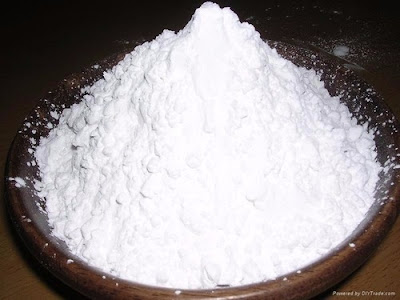What is the role of zinc chloride in food - Amizara Speciality Chemicals?
Zinc chloride has been used for centuries as a food preservative and flavor enhancer. It is a white, crystalline powder composed of zinc and chloride ions. Zinc chloride has a variety of uses, including helping to preserve food, preventing spoilage, and adding a unique flavor to food. These kinds of chemicals are available in multiple specialty chemical industries like Amizara Speciality Chemical LLP.
Zinc Chloride
Zinc chloride is a chemical compound containing zinc and chlorine. With the chemical formula ZnCl2, it is a hygroscopic white crystalline ionic salt.
The
zinc chloride solution is soluble in
water, glycerol, ether, and alcohol. Since Zinc chloride is deliquescent, it
must be protected from sources of moisture such as water vapor.
Role of Zinc Chloride in Food
Zinc chloride is a salt that is used as a food additive in various applications. It acts as a leavening agent, dough conditioner, and yeast food. It can be used as a flavoring agent and as a preservative. It is added to food in small amounts and is considered safe for consumption. However, excessive intake of zinc chloride can lead to health problems. It is important to follow the recommended daily intake guidelines for zinc and other food additives.
It
can also be used as an antioxidant, to prevent the discoloration of products,
and to prevent the growth of bacteria and fungi. Moreover, they are utilized to
reduce the amount of fat in foods, as well as improve their nutritional
content.
Zinc Chloride Preparations
Zinc chloride anhydrous is formed when metallic zinc reacts with hydrogen chloride gas. The chemical equation for this reaction is:
Zn + 2HCl → ZnCl2 + H2
To obtain a hydrated form of the compound, hydrogen
chloride can be used to treat zinc instead of hydrochloric acid. Hydrogen
chloride reacts with zinc sulfide to form zinc chloride and hydrogen sulfide.
The chemical equation of this reaction is:
ZnS + 2HCl → ZnCl2 + H2S
Since the only oxidation state exhibited by zinc is
+2, the purification of the product is relatively simple.
Benefits
of adding Zinc Chloride to foods
Zinc chloride has several benefits when added to
food:
Leavening
agent: Including zinc helps to increase the
volume of baked goods by activating the yeast and creating carbon dioxide,
which causes the dough to rise.
Dough
conditioner: It can improve the texture and
elasticity of dough, making it easier to work with and resulting in a
better-finished product.
Yeast
food: It is an essential nutrient for yeast
growth, and the addition of zinc chloride can help to promote the growth of
yeast in dough.
Can
be a flavoring agent: Zinc chloride can be
used to enhance the flavor of certain types of food, such as cheese.
Act
as a Preservative: Zinc chloride can act
as a preservative by slowing down the growth of bacteria and other
microorganisms.
Nutritional
benefits: Zinc is an essential mineral that plays
a vital role in many of the body's functions, such as growth and development,
wound healing, and immune function.
It's important to
note that Zinc chloride should be
used in small amounts to avoid health problems.
Uses of Zinc Chloride
●
Production of soy sauce
to recover protein.
●
Preservation of food
●
As an Acidic Regulator
●
Preservatives for
Animals Feed
Final Words
Suppose
you are looking for a trusted chemical
supplier in Mumbai offering quality chemicals. Then the right place where
you can visit is at Amizara Speciality
Chemicals LLP today! As we offer a wide range of chemicals including Zinc
Chloride at the most competitive price in India.
To
know more about our Chemical products visit us now!



Comments
Post a Comment